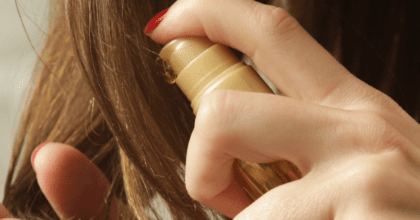Decoding skin sensitivity in Asia: 44% of female facial skincare users in China switch their skincare products due to sensitive skin
Living with skin sensitivities is an everyday reality among most Asian consumers and brands have an opportunity to help ease the burden.
In fact, research from the world’s leading market intelligence agency Mintel reveals that 44% of female facial skincare users in China say that having sensitive skin causes them to change or upgrade the skincare products that they use. Meanwhile, a third (34%) of Chinese consumers who use sheet masks will pay more for a sheet mask that’s suitable for sensitive skin.
Over in Southeast Asia, as many as 42% of urban Indonesians purchase products for acne and pimples (respectively), while two in five (39%) urban Thais purchase products to treat acne.
And it’s not just female beauty consumers who are seeking solutions for their skin sensitivities. According to Mintel research, seven in 10 (69%) urban Thai male consumers and 63% of urban Indonesian males are spending more on specific treatment products (eg pigment cream, acne patch).
Mintel will discuss these topics and more at this year’s in-cosmetics Korea (26‒28 June 2019), decoding skin sensitivity and its impact on the beauty and personal care landscape.
Sharon Kwek, Senior Innovation & Insights Analyst, Mintel Beauty & Personal Care, said:
“It is imperative that beauty and personal care players in Asia understand the nature of Asian skin and that it is more prone to sensitivity due to a thinner stratum corneum. In this light, Asian consumers are on the lookout for effective solutions that help relieve or resolve issues caused by skin sensitivity, resulting in a shift in consumer behaviour and consumption habits. The time is now for companies, brands, manufacturers and retailers to be a pillar of support and build trust with consumers living with skin sensitivities.”
With more and more consumers demanding beauty solutions that help with sensitive skin, Mintel research indicates that they need guidance when choosing the appropriate skincare options. As many as three in four (73%) Chinese beauty and personal care shoppers say that they prefer a beauty advisor who can provide appropriate suggestions on skin issues.
“While Asians may be aware of their skin sensitivities and have a fair amount of understanding of the type of products they need in their regime, it is important that companies, brands, manufacturers and retailers support consumers in choosing the skincare that will work best for them—and this encompasses all consumer touchpoints, be it through an official brand website, advertising, in-store shopping experience or social channels. Essentially, consumers are in need of expert advice, something that is highlighted in Mintel Trend ‘Return to the Experts’ which uncovers how expert human advice is back in fashion.” Sharon continued.
Finally, beauty brands catering to skin sensitivities and the medical industry will have an opportunity to share objectives. Almost half of Indonesian (49%) and Thai (47%) male facial skincare users say that it is important for their facial skincare products to be dermatologist-tested or endorsed by a medical expert.
“To boost their credentials, and hence confidence, among consumers, brands can look at partnering with hospitals or doctors who are either working on or are experts in skin sensitivity.” Sharon concluded.
For the latest in consumer and industry news, top trends and market perspectives, stay tuned to Mintel News featuring commentary from Mintel’s team of global category analysts.
-
Mintel StoreGet smart fast with our exclusive market research reports, delivering the latest data, innovation, trends and strategic recommendations....View reports
-
Mintel LeapMintel Leap is a revolutionary new AI-powered platform that will transform your research process....Book a demo







































